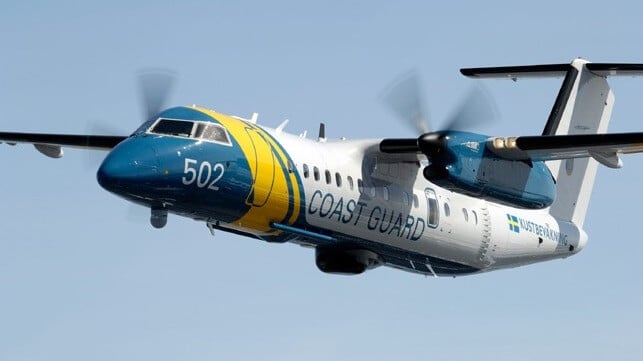Swedish Coast Guard Catches Crewmember “Red-Handed” Dumping Trash

Sweden’s Minister of Civil Defense, Carl-Oskar Bohlin, and the Swedish Coast Guard are reporting that surveillance efforts detected a crewmember dumping trash into the Baltic. While a fairly minor offense, officials said it demonstrates the level of monitoring now underway and, after all, “the sea should be free of trash.”
A Coast Guard aircraft on a routine patrol detected the offense. When asked how much, a spokesperson said it was enough that they could see it from the air. It was described as ordinary household trash, with the Coast Guard emphasizing it was not a discharge from the ship.
The incident took place on Monday, October 20, with the ship only being described as a Liberian-flagged bulk carrier. Media reports said it had paused off Sweden, dropping anchor near Faro, an island in the Baltic, while it was on a trip from Russia to India. The Swedish Coast Guard permitted the ship to proceed because it was heading toward Gothenburg.
The crew had been notified of the suspected crime, and when the ship anchored off Gothenburg, the Coast Guard boarded the ship and began interviews. Media reports said the offending crewmember confessed to dumping the trash. The reports said he was fined “50 daily fines,” but did not specify an amount. Under Swedish law, fines are commensurate with the person’s income. Typically, a daily fine for minor infractions ranges between SEK 50 and 1,000 (approximately $5 to $100), which would be multiplied by 50 in this case.
Swedish law also holds the individual who committed the act liable. In this case, neither the ship nor its master was liable.
A Coast Guard spokesperson told the Swedish news outlet Dagens Nyheter that it was “relatively unusual” for the Coast Guard to discover this crime. They said typically they are dealing with discharges from the vessels, which cause more pollution.
The Swedish Coast Guard had reported earlier this year that it was increasing its monitoring efforts based on concerns about shadow fleet vessels transiting the region. They are conducting regular surveillance flights and other efforts along the coast and over the Baltic. Starting in July, the Coast Guard was also tasked with collecting insurance information from ships that pass through Swedish territorial waters or the economic zone, regardless of whether they are scheduled to make a port call in Sweden.
